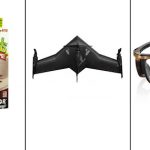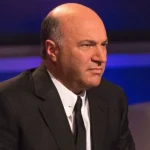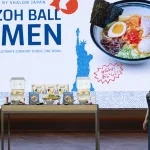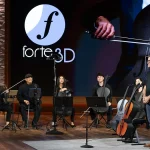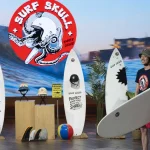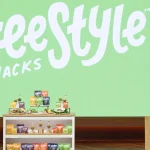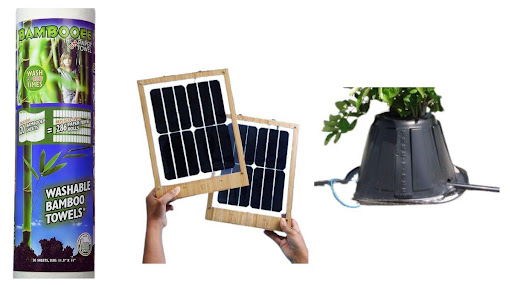
Highlights
- Shark Tank acts as a global platform for entrepreneurs to present their thoughtful business ideas to a wider audience.
- In its sixteen seasons to date, the show has seen countless eco-friendly products, including kitchen supplies, agricultural tools, and energy-saving appliances.
- The journey of these three eco-friendly Shark Tank products certainly grabbed attention and got deals from the Sharks.
Over the years, the global stage of Shark Tank has allowed viewers to become aware of the most trending and innovative business ideas with every season. One of the strongest trends is an increase in the number of eco-friendly Shark Tank products.
Top Eco-Friendly Shark Tank Products That Made an Impact
From reusable kitchen towels to window solar panels, below are some notable Shark Tank products that not only impressed the Sharks but also captured the attention of eco-conscious viewers at home.
1. Bambooee
The duo of husband and wife Irene and Noam Krasniansky made their way to the investors with their eco-friendly kitchen product, Bambooee. It is a reusable paper towel made from bamboo and was positioned as a sustainable kitchen essential.
The enthusiastic commercial-like pitch received many chuckles and giggles from the judges. The entrepreneur duo described that each unit of Bambooee included 20 towels, which could be washed a hundred times. This is how the usage of dozens of paper towels could be eliminated.
The entrepreneurs further revealed that they started the venture in 2009 when Irene no longer wanted to use paper towels. While hunting for a sustainable alternative that solved the cleaning purpose, Noam came up with Bambooee.
Before making it to the show, the company had already established a decent market presence by receiving multiple accolades from different green advocates and kitchen shows.
The best part was that the duo planted a tree for every unit of Bambooee sold. Until their appearance on the show in 2013, they had planted over 50,000 trees.
Who Made the Deal?
The entrepreneur couple sought $200K for 10% equity. They revealed that they had made $122K through sales in the year of their launch, continuing with $300K in 2010.
Kevin O’Leary was concerned about the distinguishing factor. To this, Noam replied, saying they had a patent for their proprietary manufacturing process.
The profits made in 2012 were $900K, with total sales of $1.6 million. Although impressed with the numbers, the Sharks had their fair share of concerns.
Robert Herjavec felt the business would not work in Europe as the people over there prefer cleaning clothes over paper towels.
The claims did not convince Kevin of the positive effects on the environment. Still, he offered $200K for 10% equity along with an 8% interest rate.
Lori Greiner made the following offer at $200K for 10%. Without any other offers in hand, the entrepreneurs went ahead with Lori’s deal.
The Bambooee founders made great sales after their appearance on the show. Based on this, they found a special mention in the ‘Beyond the Tank’ segment of Shark Tank. Propelled by their success, the entrepreneurs launched charcoal-filled pillows as a new offering.
As of 2022, the venture is growing leaps and bounds with $5 million in annual revenue. The estimated net worth of Bambooee is around $5 million as of 2025.
2. Tree-T-Pee
One of the most loved Shark Tank products, Tree-T-Pee, was brought to the investors by Johnny Georges. The business was a brainchild of Johnny and had been running since 1986.
Available in the shape of a cone, the product was manufactured out of recyclable plastic and was committed to assisting farmers with growing trees and protecting crops in the citrus states.
It did so by bringing down the water consumption requirements to 800 gallons per tree. The regular figure is 10,000 gallons per tree.
Additionally, Tree-T-Pee also offered ideal protection from frost-like conditions in chilly areas, which otherwise would result in a damaged farm. The products were available in custom colors.
Who Made the Deal?
The entrepreneur sought an investment of $150K for 20% equity. It cost $2.95 to make one unit, and the selling price was $4.50. The company had sold more than 127,000 units in the past two decades.
Mark Cuban wanted to know if he had any distributors and why he was not raising the selling price to $7. To this, Johnny replied, saying he was selling only to people he knew.
He also felt the farmers, who were his end buyers, could not afford a higher price.
Kevin O’Leary was not satisfied with the low margins, so he stepped out of the deal.
However, Guest Shark JP DeJoria was interested in making an offer at $150K for 20%. He believed in the vision and actions of the entrepreneur, so he finalized the deal at the asked valuation.
The association with JP allowed Johnny to expand his market and reach homeowners through a prominent presence in Home Depot stores. The company even made $5 million in annual revenue by 2021.
As of April 2024, the current value of Tree-T-Pee has touched the massive figure of $100 million, and the products are available all across the globe.
3. GroupHug
Aspiring entrepreneur Krystal Persaud approached the judges with GroupHug. Seeking an investment of $150K for 10% equity, she presented a comprehensive pitch for her eco-friendly company that prepares solar panels.
Krystal started by giving a backstory of the sustainable idea. As an industrial design program graduate, she had always wanted to come up with her own venture. When conversing with different people on potential business ideas that uphold sustainability, solar power topped the list.
However, the problem with implementing this idea in an urban setup was limited spacing. This is how GroupHug came into existence, whose solar panels were available in the form of a picture frame. So, one could hang it anywhere in their home and charge their electronic gadgets.
Through a successful Kickstarter initiative, Krystal made over $70K in 2019. The flagship product was a window solar charger, which required 8 hours to charge up. The cost for the same was $149.
Who Made the Deal?
When the show aired, the company had yet to fulfill orders raised via the Kickstarter campaign. Krystal sought help from the judges to bring down the costs and upscale the production.
None of the Sharks, except Mark Cuban, was interested in making an offer. Unlike his fellow judges, he believed it had the potential to generate business, as many companies would want such a solar charging station.
Mark made an offer of $150K for 25% equity; Krystal agreed, and the deal was finalized.
After facing an initial stumble in early 2020 due to the pandemic, GroupHug gained the required momentum and delivered its Kickstarter orders by September 2020.
Additionally, the company successfully installed its solar panels in every state by 2022. Its annual sales are between $900K to $1 million. The estimated net worth of GroupHug is around $1.5 million as of 2025.
Sustainability Finds a Stage on Shark Tank
In its 16-year-long successful run, hundreds of Shark Tank products have caught the attention of both the judges and audiences. But the ones that stand out are not just high on entrepreneurial spirit but are also powered by environmental commitment.
Be it Bambooee, GroupHug, or Tree-T-Pee, the success of each of the eco-friendly products indicates the demand for products that uphold sustainability.
By turning everyday challenges into green solutions, these founders highlight how Shark Tank continues to inspire a new wave of eco-friendly entrepreneurship.
References
1. Bambooee, Lori Greiner
2. Whatever happened to Grouphug Solar Panels For Windows after Shark Tank season 11?, House Digest, Brooke Younger


